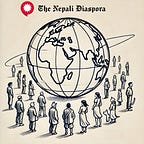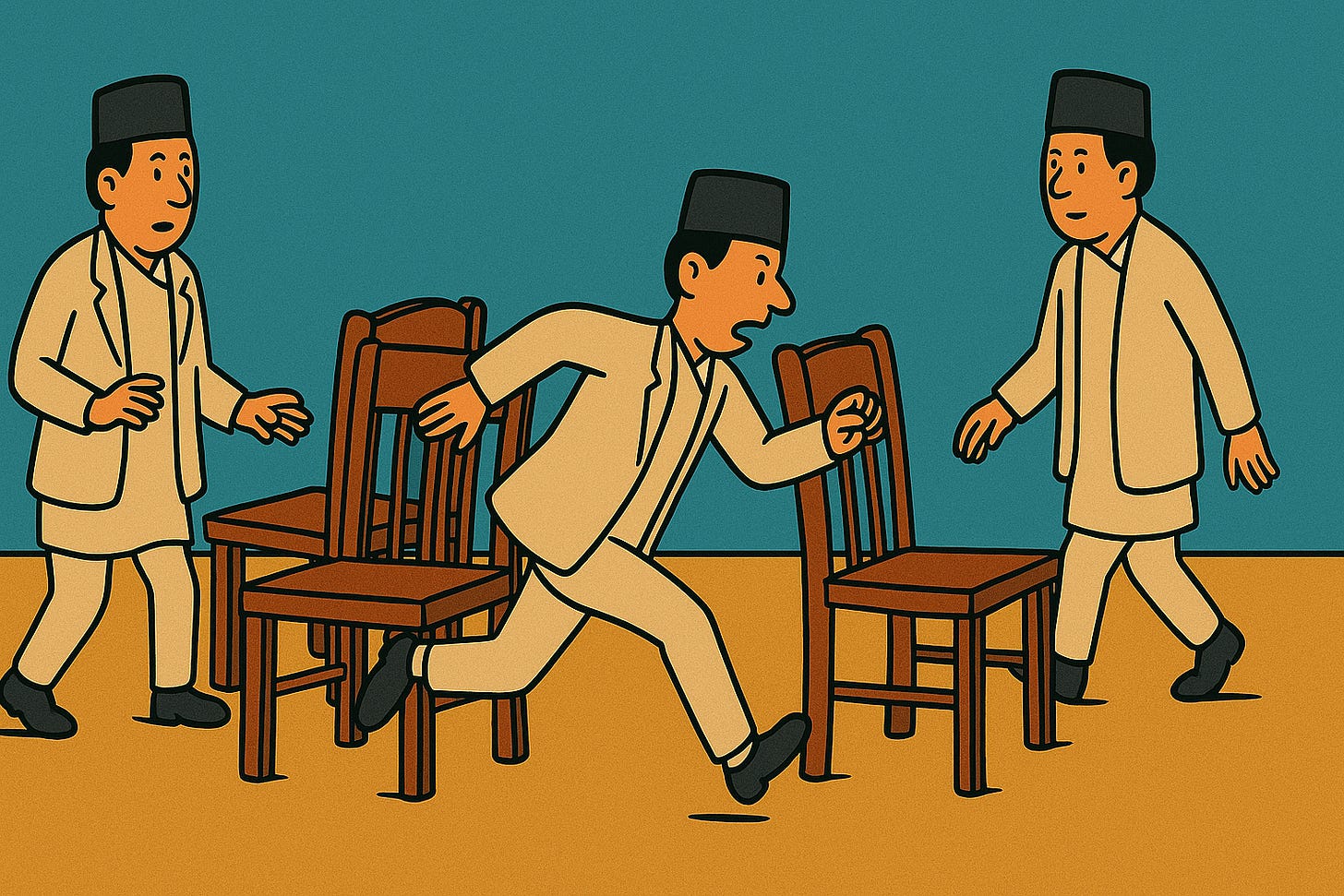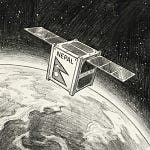Share the love! Help others that care about Nepal stay up to date the easy way. If you like this issue, share it with a friend who follows Nepal and hit Subscribe for your weekly dose of curated, can’t-miss updates.
Trade bottlenecks, big‑ticket power contracts, and a dash of culture — Thangka provenance, cricket diplomacy, and yes, even methane finds — sum up this week in Nepal. With parliament dithering over dry‑port ratification and cabinet reshuffles while infrastructure deals, tourism tweaks and civic fixes promise practical gains, the diaspora should watch whether these moves turn into real momentum or just more political footwork.
Economy & Development 💸
Five years after the Industry Ministry approved Nepal’s accession to the ESCAP Intergovernmental Agreement on Dry Ports, the pact still awaits parliamentary ratification, leaving a big opportunity to cut freight costs and speed up trade caught in limbo, according to KTM Post. If endorsed, five inland container depots — Kakarvitta, Biratnagar, Birgunj, Bhairahawa and Tatopani (Larcha) — would gain international recognition, potentially allowing direct imports, removing the need to clear cargo at Indian ports and trimming detention and demurrage costs; experts say this could give Nepali traders better leverage with shipping lines and attract private investment, but frequent government and bureaucratic changes and regional sensitivities remain key obstacles to implementation.
Meanwhile, the US‑backed infrastructure push continues: MCA‑Nepal has signed two contracts worth about $154.5 million to build 180 km of high‑voltage transmission lines under the MCC Nepal Compact, with winners named after competitive bidding, as reported by THT and KTM Post. The agreements cover design, installation, testing and commissioning and are pitched to boost grid reliability, enable regional power trade and catalyse private investment under a broader $697m compact; the coverage focuses on technical and diplomatic gains and does not link the project to US domestic political figures or controversies such as former President Trump.
Other near‑term items to watch: the government has waived permit fees for 97 lesser‑known peaks (5,870–7,132m) in Karnali and Sudurpaschim to promote local tourism and diversify climber flows (MyRepublica), while preliminary surveys in Dailekh indicate roughly 11.2 billion cubic metres of methane at one site but no agency or commercial plan has yet been assigned (MyRepublica), and the Nagdhunga‑Sisnekhola tunnel’s tolls (Rs60–Rs600) and motorcycle ban were set ahead of an October trial as Kathmandu prepares for a new traffic corridor; at the same time, consumers continue to report power disruptions even as NEA officials deny formal load‑shedding, underscoring that infrastructure projects must be matched with operational fixes and local engagement (KTM Post).
Social & Cultural ⭐
THT reports that the Himalayan Art Council has launched a secure digital certification system to protect Thangka and Paubha paintings, creating an immutable provenance trail and mechanisms to track royalties—a move that could boost international prices and give diaspora collectors confidence to invest in Nepali art. At the same time, KTM Post shows how growing cricket ties with India—training camps, friendlies and institutional support—are operating as practical sport diplomacy, catalysing sponsorships, youth development and cross‑border cultural commerce.
THT notes Health Minister Pradip Paudel’s plan to operationalise 55 basic hospitals, an effort that will demand rapid hiring of doctors, equipment procurement and smoother handovers but could decentralise care and create local jobs if implemented. For the diaspora who travel frequently, MyRepublica warns that Tribhuvan International Airport’s immigration office now asks passengers to enter an hour before departure to ease nighttime congestion—an operational detail that affects remittance schedules, business trips and tourism planning.
KTM Post reports Kathmandu will sterilise over 10,000 of an estimated 19,000 street dogs this fiscal year with a Rs10 million allocation for sterilisation, vaccination and shelters—an upfront municipal investment aimed at cutting bite incidents, lowering treatment costs and progressing toward the 2030 rabies elimination target. Cultural continuity also matters for economic life back home: the PM’s Gaijatra greetings carried by Rising Nepal are a reminder that festivals drive seasonal spending, tourism interest and community cohesion that the diaspora often supports.
Politics & Governance 🏛️
Prime Minister KP Sharma Oli has publicly framed recent high‑profile remands as matters for the courts and insisted the governing coalition will remain intact until 2084 BS. According to THT, Oli rejected narratives of “political revenge,” stressed judicial independence, and urged MPs not to use parliament for social‑media theatrics. For the global Nepali community, that reassurance matters: sustained political stability and predictable institutions are basic preconditions for restoring investor confidence and keeping development projects on track.
At the same time, a planned cabinet reshuffle aimed at removing underperforming ministers has been stalled after the Nepali Congress withheld consent, exposing coalition tensions that could affect governance. Reporting in MyRepublica notes several ministries—including the Finance Ministry—are in the “red zone,” and that bargaining over replacements is underway. A blocked reshuffle raises the risk of delayed budget decisions, slower reform delivery and uncertainty for infrastructure and service‑delivery programs.
Diplomacy and local contests add further economic implications: Oli will attend the SCO summit in China before a subsequent visit to India, a sequence MyRepublica says is meant to balance external ties and potentially unlock trade or investment opportunities. Also on the calendar is the Nov. 3 Rupandehi‑3 by‑election—covered by MyRepublica—where local power shifts could influence regional development priorities. Together, these domestic and international moves will shape short‑term policy bandwidth and determine whether economic momentum accelerates or stalls, a key watchpoint for the diaspora.
Diaspora & Globalisation
Family presses for kidnapped Nepali’s return: Bipin Joshi’s mother and sister have travelled to Israel to press for his return nearly two years after he was taken during the October 7 attack, making public pleas, visiting sites tied to his disappearance and meeting local contacts to gather information. Survivors credit Bipin with saving several people during the assault, but he has not been seen since; Israeli officials—including a special‑forces officer—say rescue efforts continue. The case highlights ongoing trauma among Nepalis in Israel and the importance of consular support and diaspora advocacy (THT).
Let’s connect
Enjoying this issue? 📩 Share it with a friend & let’s keep Nepalis worldwide in the loop! Got thoughts? Hit reply—we’re all ears! Or let us know what you think via our Feedback form or follow us on Facebook | LinkedIn
P.S. Got a story or issue you'd like us to cover next week? Drop us a reply — we're building this space together.
About Nepali Diaspora Digest:
The Nepali Diaspora Digest connects the global Nepali community with curated news, insights, and stories that matter most. Join us as we celebrate and explore the diverse voices and achievements of Nepalis worldwide.
Partner shout out
belayat.uk: helping Nepalis connect in the UK on jobs, housing, events and finding local Nepali owned businesses















